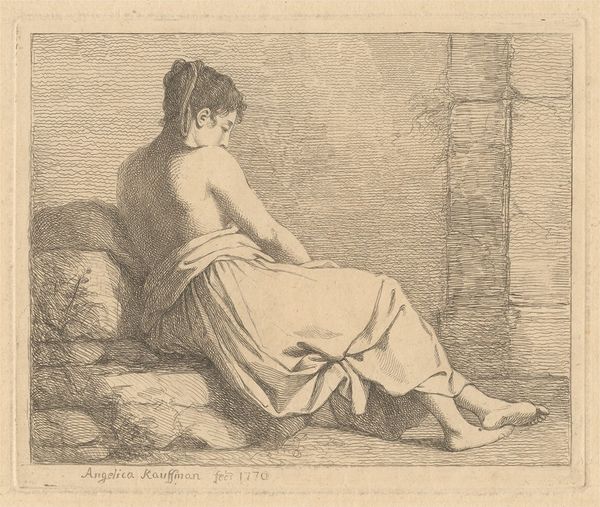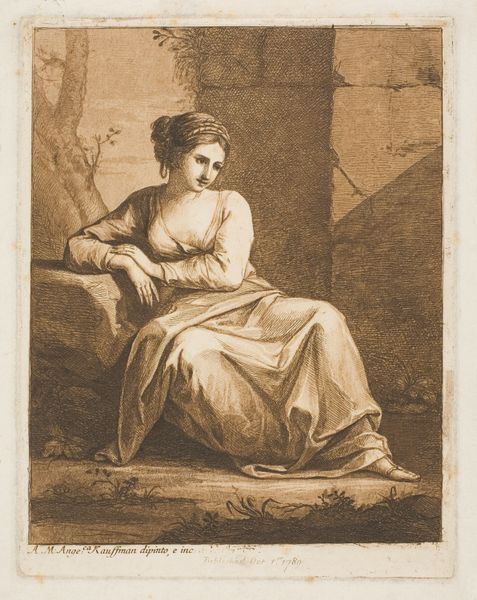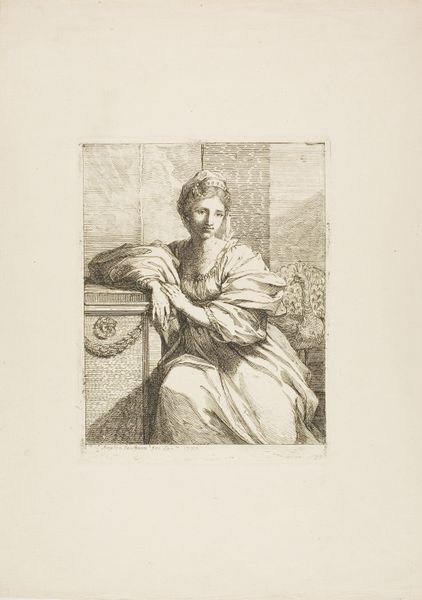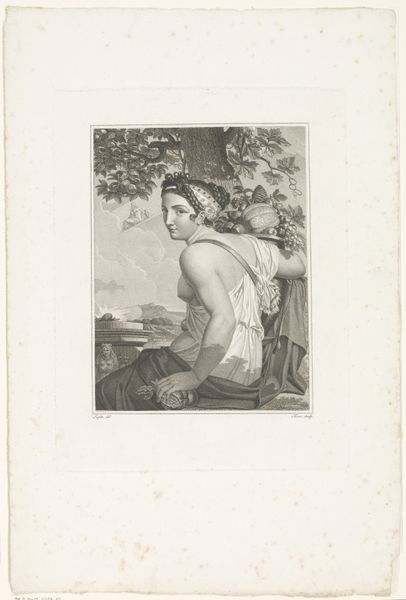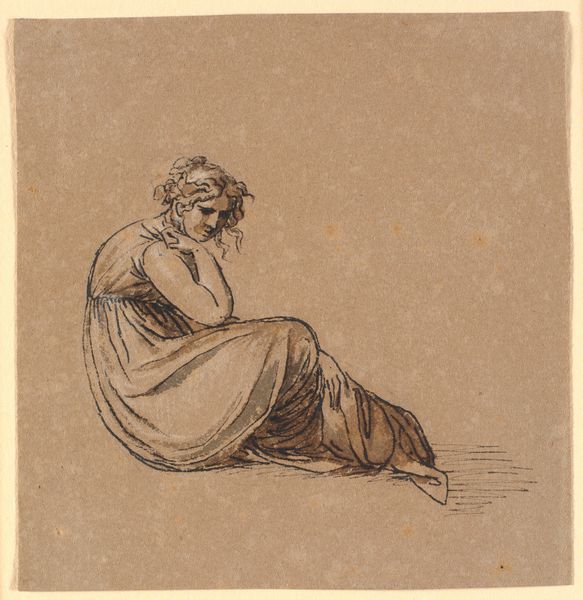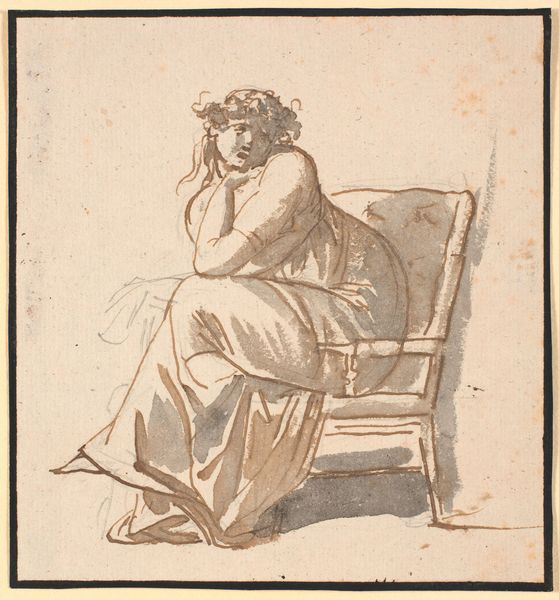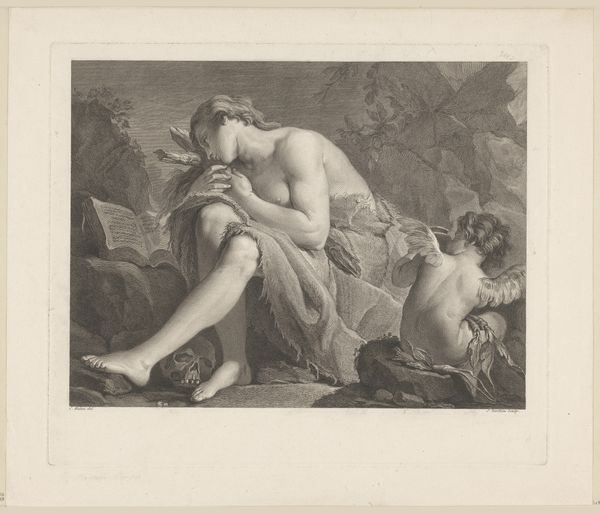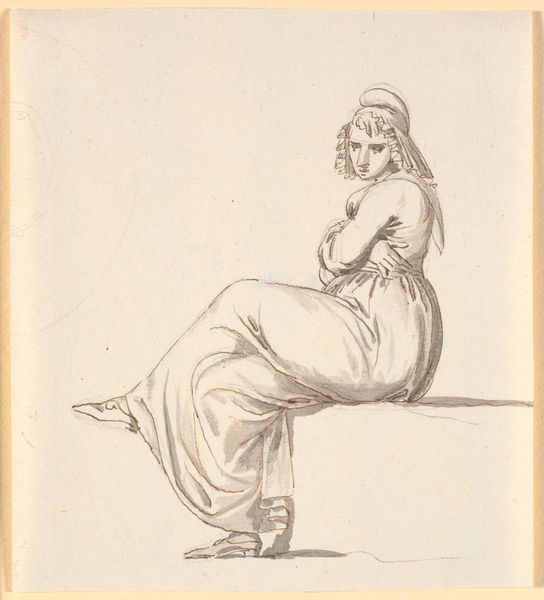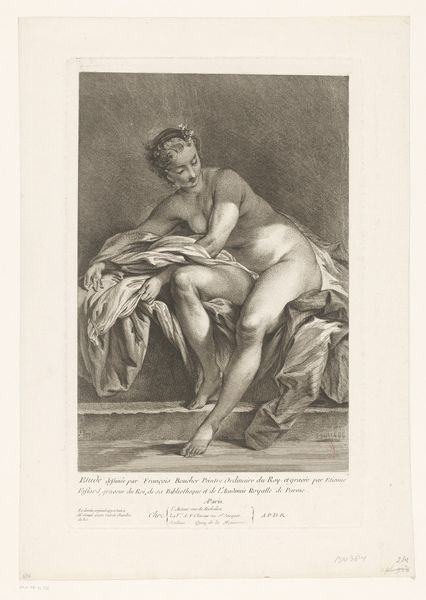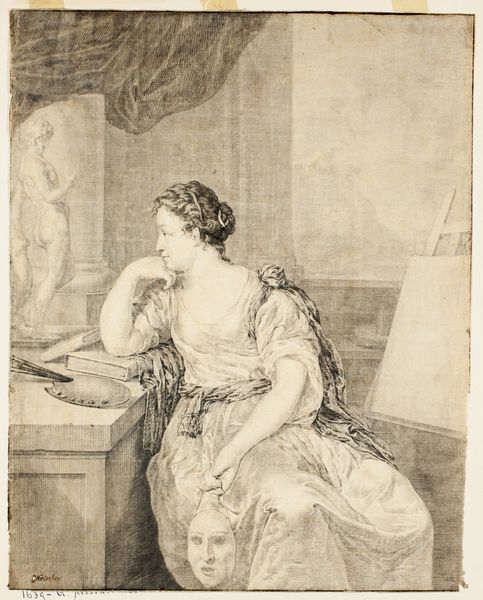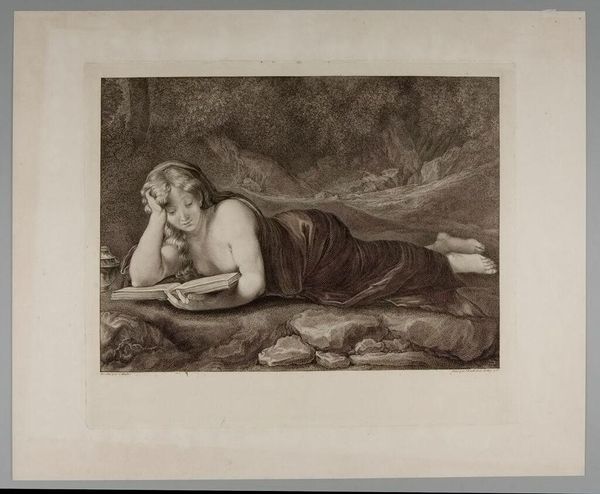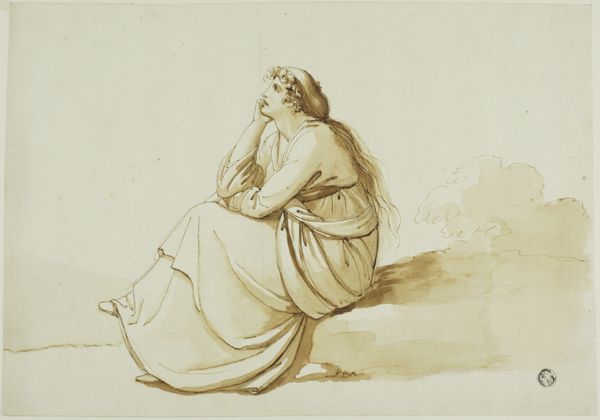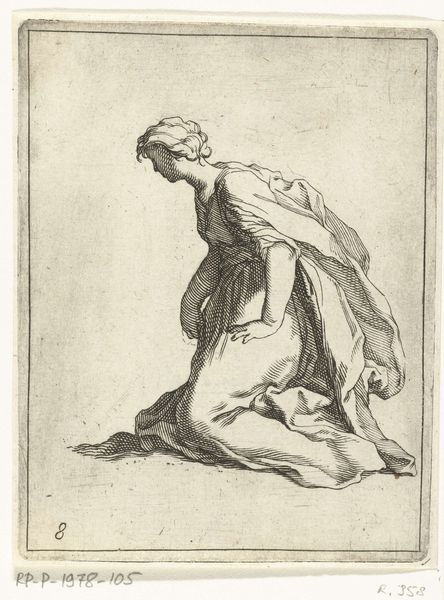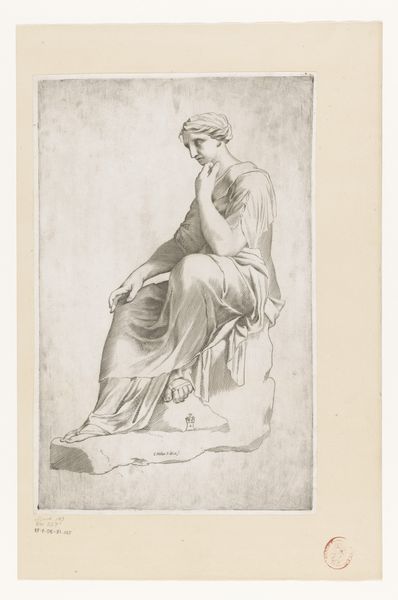
drawing, print, etching, paper
#
portrait
#
drawing
#
neoclacissism
# print
#
etching
#
classical-realism
#
paper
#
pencil drawing
#
history-painting
#
nude
Dimensions: 145 × 180 mm
Copyright: Public Domain
Angelica Kauffmann created this etching, "Reclining Girl Seen from the Back," sometime around 1780, using a copper plate. The sepia tones you see come from the etching ink that was rubbed into the plate’s fine lines. The pressure of the printing press then transferred the image to the paper. Etching is an indirect process. The plate is covered with a waxy ground, and the image scratched through that, exposing the metal. Acid is then applied, which bites into the metal only where it has been exposed. Because the artist isn’t directly cutting the line, as with engraving, etching allows for a more fluid and sketch-like effect. Note the comparative freedom of line in the girl’s drapery and hair, and the textures of the rocks she is sitting on. The printmaking medium was crucial to Kauffmann’s career. It allowed her paintings to reach a much wider audience, and this in turn amplified her fame. The etching process itself, involving skilled labor and mechanical reproduction, also speaks to the burgeoning culture industry of the late 18th century. It is a reminder that even seemingly intimate images like this one were caught up in networks of production and consumption.
Comments
No comments
Be the first to comment and join the conversation on the ultimate creative platform.
